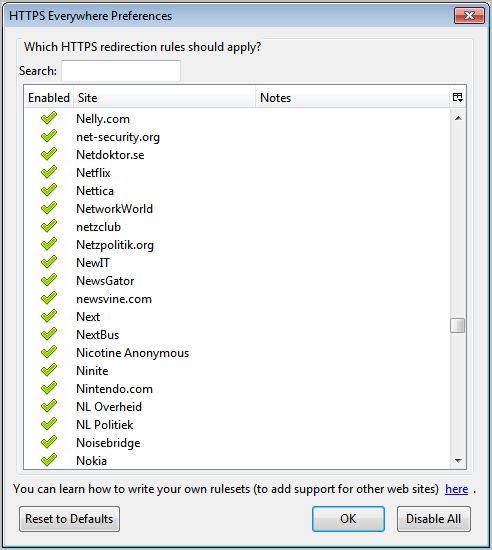I
reviewed one of the first versions of HTTPS Everywhere for the Firefox
web browser back in the middle of 2010. The Firefox extension, which
forced https connections to a handful of supported web pages, has come a
long way since then. The developers today have announced the release
of HTTPS Everywhere 1.0 which includes support for over 1,000 web
sites. Among the supported websites are previously supported sites like
Google Search, Facebook or Wikipedia, and new services and pages like
all WordPress.com blogs, Nintendo, Netflix, Dropbox or the UN website.
The extension is useful in
situations where websites support both the http and https protocol
without a clear distinction between the two protocols, or options to
always use https when a user is connecting to the website.
HTTPS Everywhere basically
ensures that https is always used when connecting to one of the
supported properties. Connections that are initiated by the user via
http are automatically switched over to https in this case.
The add-on options list all
supported websites and services. It offers a search to find a specific
site and a switch to enable or disable the https redirection.

Web users who know their way around regular expressions can even create their own rulesets to add support for websites and services that are not included in the default site listing.
New users to HTTPS Everywhere should take a look at the extensive FAQ section at the development site over at EFF.org for detailed information about the add-on and how it protects the user.
It may happen that HTTPS
Everywhere breaks some part of a website, which can usually be
attributed to inconsistent support for HTTPS on those sites. The only
option then is to disable the rule and report the problem to the
company or individual running the website.
HTTPS Everywhere can be installed directly from the EFF website. Cautious users can look at the source code of the project which is also available on the project site.